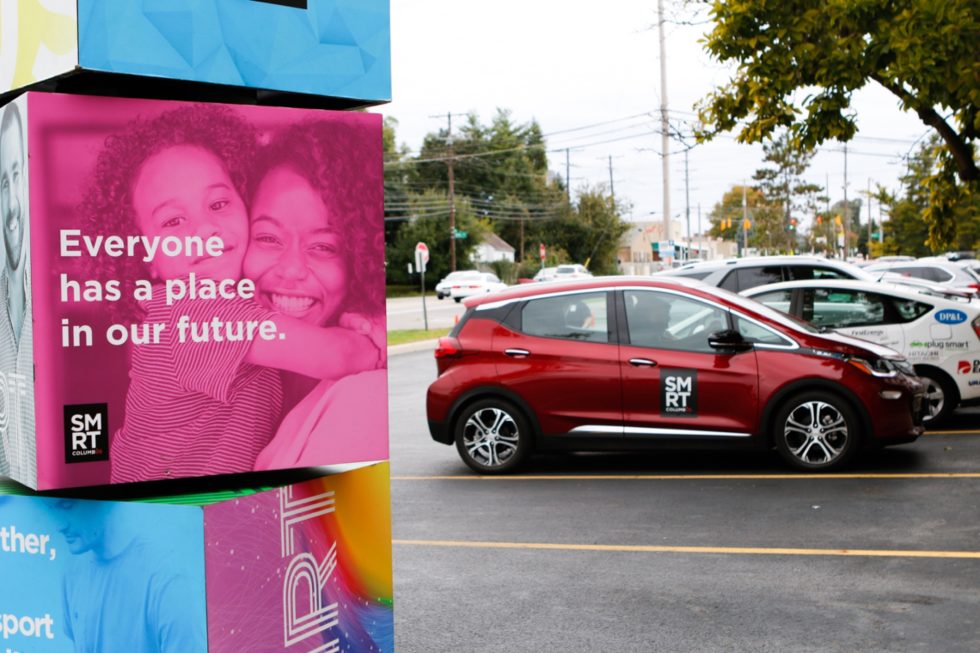-

Part of the Smart Columbus initiative is increasing the rate of electric vehicle adoption in the area. [credit: Smart Columbus ]
In 2016, the city of Columbus, Ohio beat out nearly 80 other metropolises to win the Department of Transportation's Smart City Challenge. The title is more than just bragging rights: there's a $40 million DOT grant—with another $10 million coming from Paul G. Allen Family Foundation—to help the city put together a holistic approach to using technology to make getting around Columbus safer and more sustainable. I've been keeping an eye on Smart Columbus, as it's known, for a while now. But as is the way with these kinds of large multidisciplinary programs, the first couple of years aren't particularly newsworthy unless you really love hearing about planning meetings. Now, that's starting to change.
Among the projects underway are the Smart Columbus Operating System, an open data platform which will become the backbone of the smart city strategy; a multimodal trip planning app, which is the kind of Fifth Element multipass for which Alex Roy often evangelizes; and various programs to provide mobility solutions to residents needing prenatal care or those with cognitive disabilities. While all of those things are still in relatively early stages of development, Smart Columbus' plan to spur the adoption of electric vehicles has been underway for a bit now.
Since the beginning of 2017, the city has seen an uptick in people choosing battery EVs and plug-in hybrid EVs that's outstripped both the national and midwest regional average. Specifically, the increase in new EVs since January 2017 has been 121 percent in Columbus, 94 percent for the US as a whole, and just 82 percent for the Midwest.
No comments:
Post a Comment